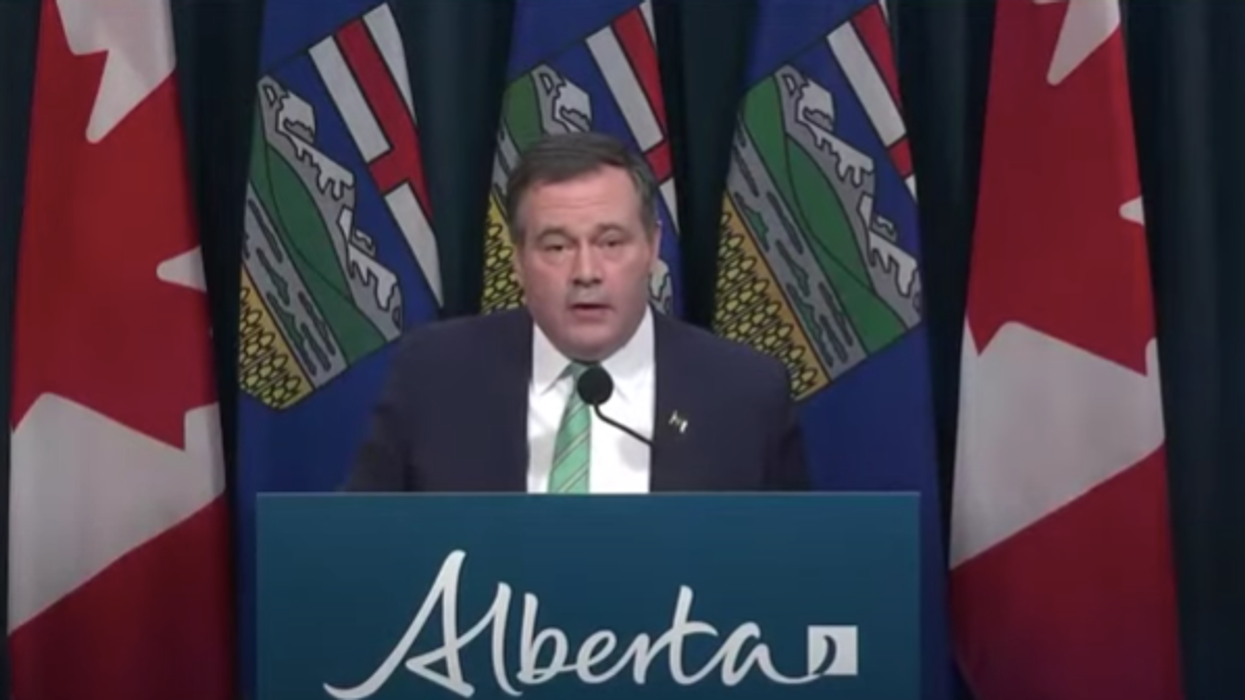Alberta Premier Apologizes For Comparing Unvaxxed People To HIV/AIDS Patients
"I was wrong to do so and apologize without reservation."
Alberta Premier Jason Kenney has apologized after his comments, comparing unvaccinated people with the discrimination HIV/AIDS patients experienced during the 1980s, came under criticism.
His comments came during an announcement that the province would be ending its vaccine passport system on Wednesday, February 9 and easing some COVID-19 restrictions next week.
Kenney's response came to a question about concerns from vaccinated people, who claim they will not eat at restaurants where it's possible they could be dining next to someone who is not vaccinated.
He said: "To stigmatize people in that way, it kind of reminds me of the attitudes that circulated in North America in the mid-1980s about people with HIV/AIDS. This notion that they had to be kind of distanced for health reasons…this is a terribly divisive attitude."
Cabinet minister and Edmonton Centre MP Randy Boissonnault described Kenney's comments as untrue.
He tweeted: "There is simply no comparing vaccine passports, something that has been a travel requirement for countries for decades, to the discrimination faced by victims of HIV.
"HIV positive people were kicked out of their homes. They were denied access to burials, to cremations, to funerals. They were denied the right to see their loved ones because of homophobia and prejudice.
"To pretend that people who refuse to take advantage of a life-saving vaccine have faced comparable discrimination … is simply not true."
Let\u2019s be very clear. There is simply no comparing vaccine passports, something that has been a travel requirement for countries for decades, to the discrimination faced by victims of HIV.https://twitter.com/cspotweet/status/1491224644942446592\u00a0\u2026— Randy Boissonnault \ud83c\udff3\ufe0f\u200d\ud83c\udf08 (@Randy Boissonnault \ud83c\udff3\ufe0f\u200d\ud83c\udf08) 1644378124
On Wednesday morning, the premier apologized for his comments, posting: "I made an inappropriate analogy to the stigmatization of people with AIDS. I was wrong to do so and apologize without reservation."
Alberta will begin Step 1 of its COVID-19 reopening plan on Monday, February 14.
Rules requiring students to wear masks will end, and children under the age of 12 will also not have to wear masks in any indoor or outdoor settings.
Capacity limits in large facilities and entertainment venues (for more than 500 people) remain in place, but people can now enjoy food and beverages in their seats.
Step 2 of the province's plan begins March 1 if hospitalizations numbers are in decline. This would include lifting all restrictions for large venues and entertainment venues, indoor and outdoor gatherings and mandatory work-from-home requirements, as well as scrapping the mandatory mask rules in indoor settings.
- Someone Claiming To Be A Nurse On Reddit Just Lost It On Anti ... ›
- An Alberta Restaurant Has Been Caught Accepting Dog Photos As ... ›
- Alberta Releases Its Official Plan To Lift 'Damaging' COVID-19 ... ›
- Alberta Ends Its Vaccine Passport But Bars & Restaurants Can Still Deny Entry To Unvaccinated - Narcity ›
- People Have Been Trolling The Wrong Jason Kenney & His Replies Are So Sassy - Narcity ›
- Alberta's New Premier Said Unvaccinated People Are The 'Most Discriminated Against Group' - Narcity ›
- 'Terrifying' Video Shows Man Berating A Couple In Vancouver & Hurling Homophobic Slurs - Narcity ›
